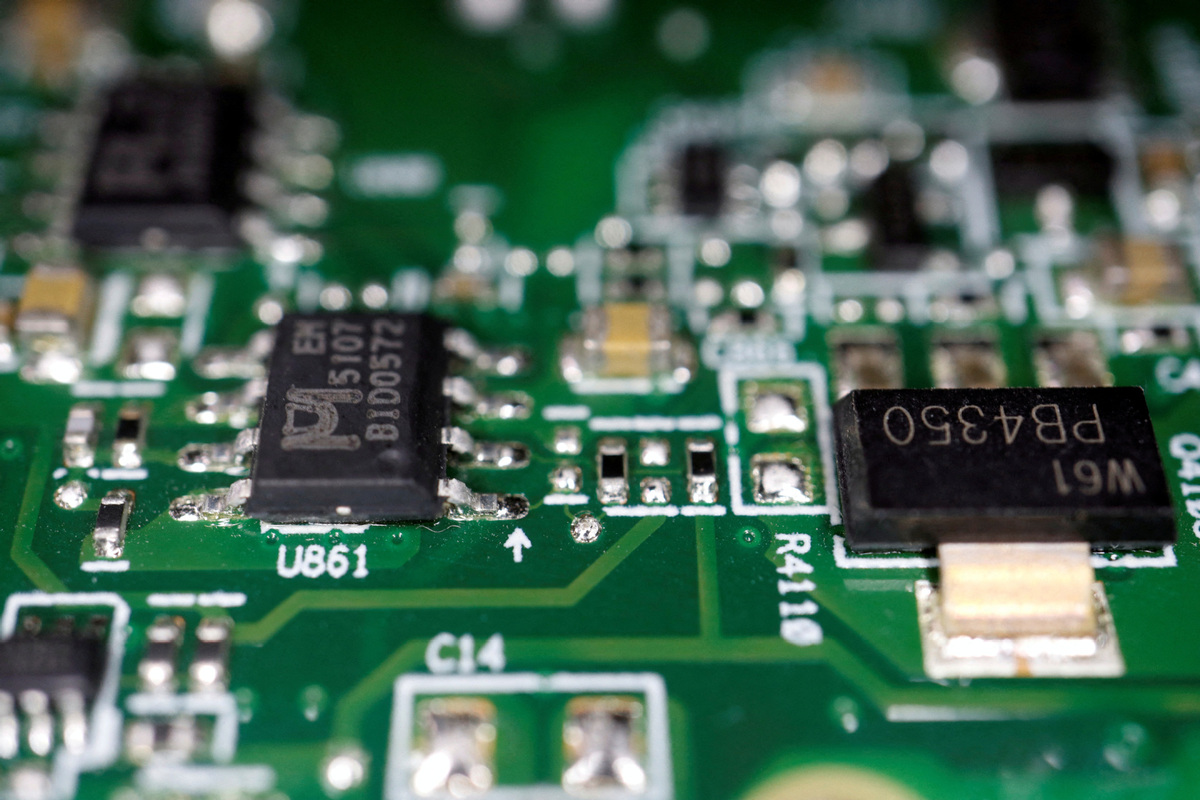Tokyo's export controls 'violate WTO rules'


Japanese chip-making equipment manufacturers victims of restrictions
Japan's new semiconductor export control plans violate the rules of the World Trade Organization, and will undoubtedly hurt the global semiconductor industry and backfire on Japan's chip sector, experts said.
The comments came after the Japanese government asked for public opinion until Saturday on its latest plan to restrict exports of 23 types of semiconductor manufacturing equipment, and it will devise the final rules accordingly.
Zhang Wei, vice-president of the Chinese Academy of International Trade and Economic Cooperation, said Japan's planned export control measures are contrary to market rules, will cause shocks to industrial development and undermine the normal economic and trade order.
"Cooperation on semiconductors is one of the most representative examples of mutual benefits from China-Japan economic and trade ties," Zhang said.
The Chinese mainland is the largest export destination for Japanese semiconductor equipment manufacturers. In 2022, such exports from Japan to the mainland hit 820 billion yen ($60 billion), exceeding 30 percent of Japan's total chip-making equipment exports and almost double the amount of US exports in the same sector to the mainland, according to data provided by the Chinese Academy of International Trade and Economic Cooperation.
For Japanese chip equipment makers, the mainland market contributes to about 20 to 30 percent of their sales revenue, Zhang said.
"Such close economic and trade ties indicate that there is no state of emergency between China and Japan in terms of international relations, and there is no reason for Japan to invoke national security exceptions to defend its export control measures," said Tu Xinquan, dean of the China Institute for WTO Studies at the University of International Business and Economics in Beijing.
While often implemented in the name of safeguarding national security, export restrictions are essentially a trade measure subject to the constraints of and governed by WTO rules, and these should never be an instrument of competition, Tu said.
"The chip manufacturing equipment Japan exports to China now is not in any way related to national security," Tu said. "This is a pure commercial activity as a part of global production and trade."
According to him, although the Japanese government denied that the latest move is at the United States' behest, it is obvious that it is aligning its trade controls on technology with the US push to curb China's ability to make advanced chips.
The China Semiconductor Industry Association said in a statement on Friday that it opposed the Japanese government's interference with global trade liberalization and distorting the balance of supply and demand.
The association has submitted comments to the Japanese Ministry of Economy, Trade and Industry regarding its latest export control plans. "The scope of controlled items is overly broad and far exceeds the internationally accepted list of controlled items, causing great hardship to the enterprises concerned," it said.
"In the event that the Japanese government is determined to jeopardize the well-established cooperative relationship between the Chinese and Japanese semiconductor industries, the CSIA is committed to safeguarding the legitimate rights and interests of its 900 members and shall call on the Chinese government to take resolute countermeasures," the association added.
The China Chamber of Commerce for Import and Export of Machinery and Electronic Products also said it opposed Japan's latest planned export control measures.
Wei Shaojun, a professor of integrated circuits at Tsinghua University, said Japan is a semiconductor powerhouse that plays an important role in the global market. But since the 1980s, Japan's semiconductor industry has been suppressed by the US and has gradually shrunk since then.
Meanwhile, China's semiconductor industry is on the rise, with an annual investment of nearly $30 billion, with over $10 billion spent on purchasing Japanese equipment and materials, Wei said.
"This is not an easy number to ignore for anyone. In the past year, sales of US semiconductor equipment companies in the Chinese market have been constrained by the US government and suffered heavy losses," Wei said.
If Japan restricts its exports of advanced semiconductor equipment to the Chinese mainland, the Japanese companies are bound to repeat the mistake, said Wei.
"The Japanese government must learn from the past seriously, and carefully and thoroughly consider the implications of any new export restrictions," Wei added.
Liu Zhihua contributed to this story.




































